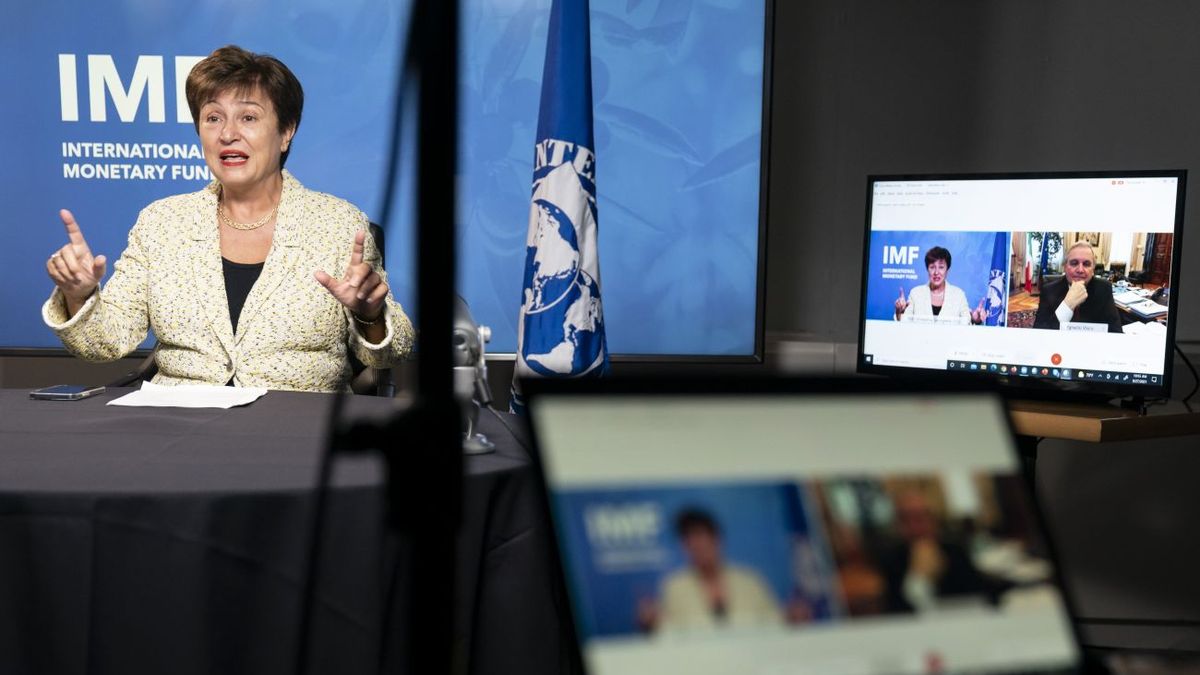The only data on Argentina were consigned in the last World Outlook (WEO) report where the agency predicts a growth of 7.5% for this year and 2.5% for 2022.
Returning to the issue of inflation, a topic that is also of concern to the region, Chalk indicated regarding Argentina that they see “multi-causal drivers of this inflation and we believe that expectations have been unmoored. We see that responding to that inflation will demand action on several fronts, given the different drivers of inflation on the macroeconomic side, and we also see that there is potentially a role for other policies, including income policies, to address that inflation. “
It should be noted that inflation stood at 3.5% in September and forecasts (even circulating in official dispatches) show that October could culminate in a similar figure.
Given the increase in inflation in Latin America and the Caribbean (includes Argentina), the Fund rescued that “Many central banks in the region have reacted correctly to these pressures by raising official interest rates and underlining their commitment to their inflation targets,” indicated the official.
At the same time, he warned that “these increases in interest rates are likely to continue in many countries in the coming months and, if there are signs that inflation expectations are less anchored, central banks will have to react quickly,” he added.
In good romance, it means raising the interest rate, something that at the moment is not in the BCRA’s plans.
Regarding the progress of the negotiations with Argentina, Chalk was not very explicit and repeated the usual phrase in the sense that the meetings are continuing.
Although he excused himself from going into details, his response to the question of whether it was possible for a technical mission to travel to Argentina this year was striking. “It will be necessary to see if that trip is necessary and if it would be productive in the negotiations.”
Some economists, both local and foreign, are already making scenarios without an eventual agreement with the IMF. It is that the times are lengthening, the difficulties increase and it is observed that the political weight of both the national government and the Kristalina Georgieva, the director of the agency, in have been weakened to achieve a broad consensus.
More surplus
One of the arguments that would explain the delay in reaching an agreement would lie in the level of surplus to which Argentina must converge.
A modification that was known at the beginning of this year, through the Report “New framework for the Sustainability of the Debt” (Review of The Debt Sustainability Framework For Market Access Countries), suggests that the Fund will also consider the quasi-fiscal deficit in the analysis of the debt of the countries.
In this sense Scope he asked Nigel Chalk and “the IMF was going to incorporate the quasi-fiscal deficit of the BCRA in the new agreement ”.
Chalk asserted that “It is one of the issues that has been worked on during the discussion with the Argentines, I do not want to anticipate what was discussed, but it is something that we are seeing ”.
Before this modification was known, in the Fund’s analysis, the work on Argentina estimated that it should converge to a surplus of 1.5% at a certain time, but this goal was without including the quasi-fiscal deficit of the BCRA.
The point is not less because when including the debt of the BCRA this implies an increase in the imbalance. To get an idea of the magnitude, according to Ecolatina’s calculations, the quasi-fiscal deficit represents 3% of GDP. It should be noted that the debt between Leliqs and Active Passes is 4.4 trillion pesos.
“The stock of debt in unpaid liabilities of the Central Bank grows bidding after bidding, and already represents 140% of the monetary base. With this, the interest burden increases, which would rise more than 70% in 2021 ”, says the work of Ecolatina.
He adds that the issue is worrying since “even if the increase in spending was only temporary and the first of the imbalances were corrected, the increase in BCRA liabilities would not be reversed, generating an increase in the quasi-fiscal deficit on a permanent basis.”
“The IMF is going to look at what happens with the Central Bank“Says an international analyst,” because it is the way to control the spending of the Treasury. “
Another specialist indicated: “The economic plan of the direction of Argentina is not yet known” and recalled that the numbers of the debt sustainability plan (private) that was presented in April 2020 prepared by the Minister of Economy, Martin Guzman, they have nothing to do with the current ones. “Argentine debt today is less sustainable than at that time,” he concluded.
In the Government they insist that it is not in discussion to reach an agreement with the IMF. Moreover, in the meeting with the businessmen, the President himself told them that they hope to close a new program with the Fund during the first quarter of 2022.
David William is a talented author who has made a name for himself in the world of writing. He is a professional author who writes on a wide range of topics, from general interest to opinion news. David is currently working as a writer at 24 hours worlds where he brings his unique perspective and in-depth research to his articles, making them both informative and engaging.




